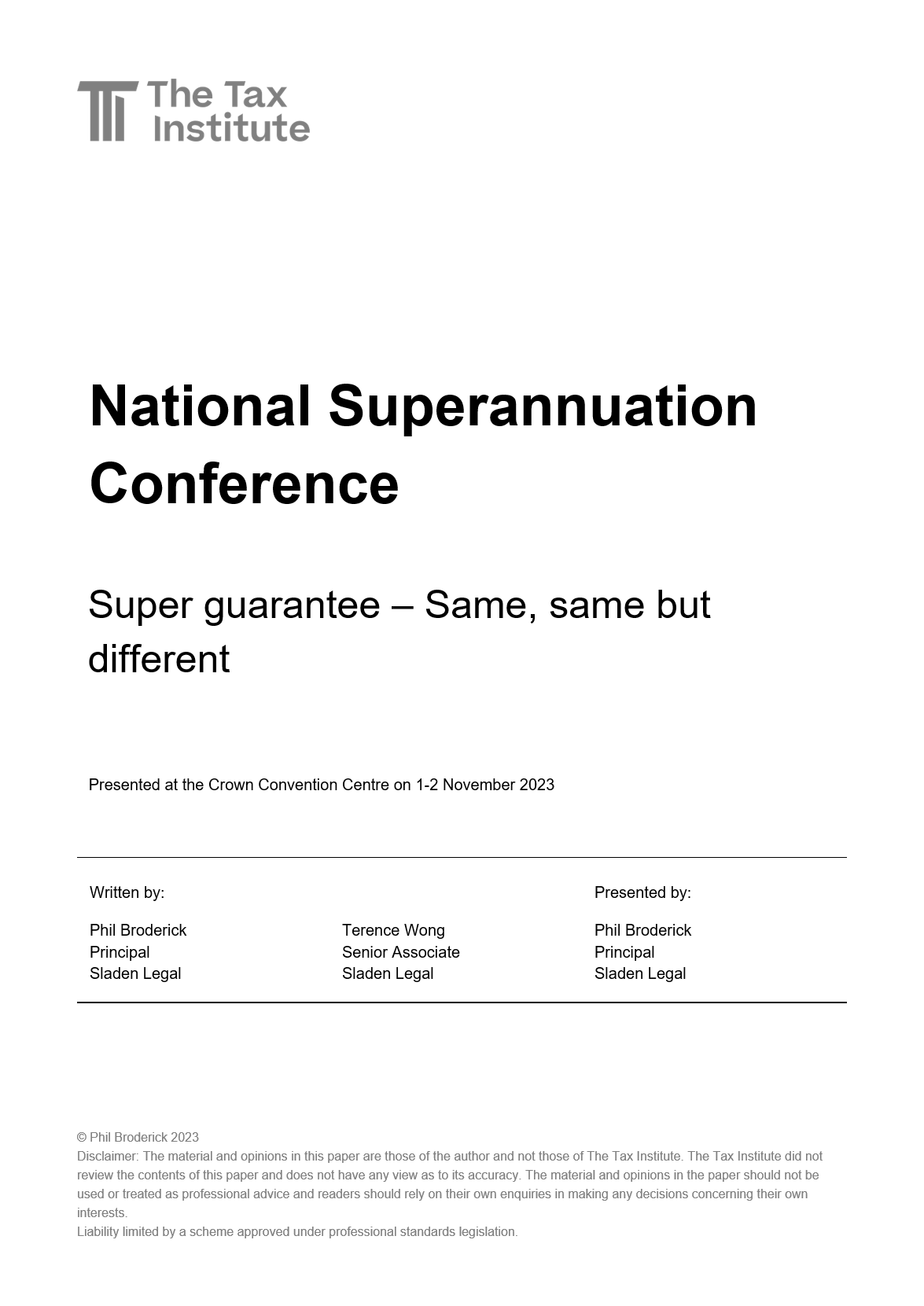This paper has been built on a previous paper on the superannuation guarantee (SG) regime, titled Super Guarantee – no longer the toothless tiger. That paper was designed to take a holistic examination of the SG regime. In this paper, we have built on that approach and added a number of developments, including:
Trust Law Principles And Challenging BDBNs
Mutual will agreements
State trust surcharges invalid?
Division 7A: The ATO Are Digging Deeper
Managing Invalid Distributions
2023 VIC Tax Forum Family trust elections, trust losses, and family change
The Deceased Estate: Who Pays The Tax
Bosanac: presumption of advancement
Death And Incapacity And The SMSF: Who Steps In To Call The Shots?
The general requirement of an self managed superannuation fund (SMSF) is that all members must be trustees of the SMSF or directors of the SMSF corporate trustee. As such, putting aside disputes between trustees/directors, generally members are making the decisions about their benefits and the assets of the SMSF.
Division 7A: Managing Unpaid Present Entitlements
Digital Assets And SMSFs – BEE Alert Or BEE Alarmed?
According to the ATO’s March 2022 statistical data (see here), the total value of crypto assets held by SMSFs was $220 million. That is less than 0.03% of all SMSF investments. The number of SMSFs that held crypto assets was 3,345 SMSFs being 0.6% of SMSFs.
Back To Basics: With Flexibility Can Come Complications: The Use Of Trusts
Lost trust deeds
Tax-Effective Succession Of A Family Trust
Multiple Party Investment Structures – Part 2: Superannuation (SMSF) Issues
Divorce, death and super – how to exit an SMSF
Main Residence Exemption: Is It The Devil Or An Angel In The Details?
The capital gains tax (CGT) main residence exemption (CGT MRE) is (arguably) the most generous exemption for post-CGT assets in the income tax legislation. The eligibility requirements are not onerous, and it is available to young and old rich and poor. However, actions, or inactions, can result in loss of the CGT MRE in whole or part.





















